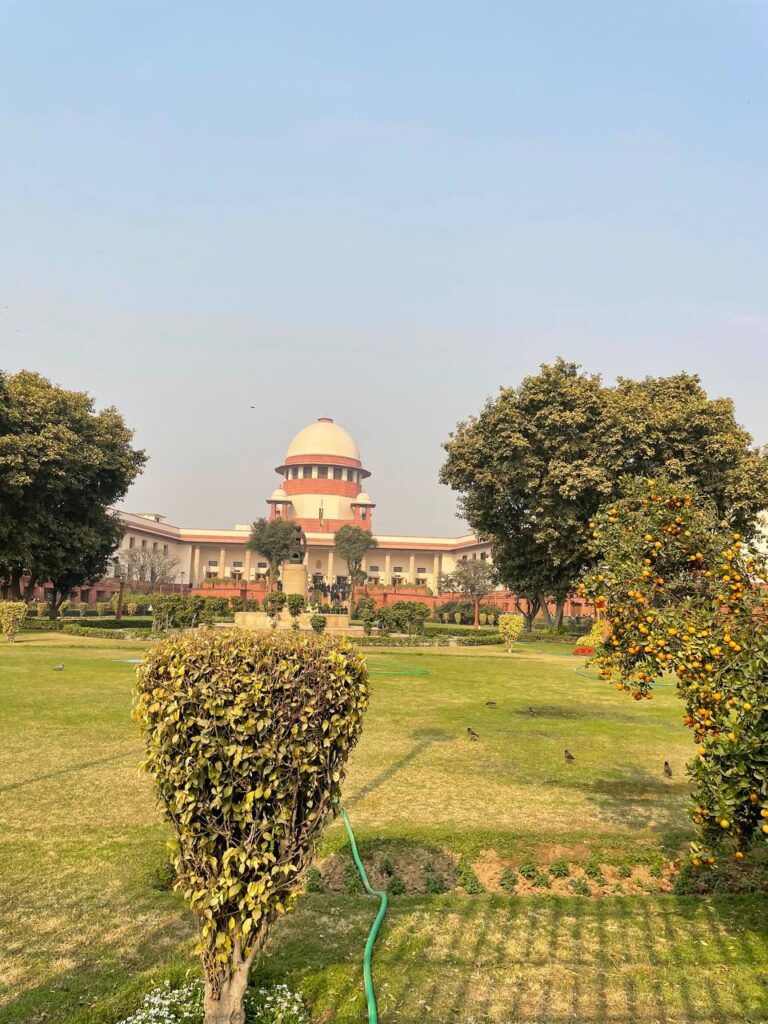New Delhi, March 21.
The Supreme Court on Tuesday asked the Law Ministry to quickly carry out a judicial impact assessment of the functioning of all tribunals functioning in the country to assess any impediments to justice and allow for a more informed decision to be taken regarding them.
The top court said this while upholding a Odisha High Court decision to vet a central government decision to do away with the Odisha State Administrative Tribunal (OAT).
The Odisha High Court will now deal with cases pending before the OAT, a top court bench led by Chief Justice of India D.Y. Chandrachud said.
The bench, which also included Justice Hima Kohli, said that the state decision would be vitiated on the ground that no judicial impact assessment was done prior to event.
The bench, however, called upon the Law Ministry to conduct a judicial impact assessment of the functioning of all tribunals functioning in the country as soon as possible, to assess impediments to justice and action on tribunals.
“… this is not to say that the Union Government and more specifically, the Ministry of Law and Justice may dispense with the directions of this court in Roger Mathew. The judgment was delivered on 13 November 2019. More than three years have since passed and the Ministry of Law and Justice is yet to conduct a judicial impact assessment.
“An assessment such as the one directed to be conducted would only shed light on the impediments faced in the delivery of justice. The lack of an assessment precludes any well-informed, intelligent action concerning tribunals in the country (as a whole).
“This, in turn, has cascading effects for the citizenry, which is deprived of a well-oiled machinery by which it can access justice. We therefore reiterate the directions of this court in Roger Mathew and direct the Ministry of Law and Justice to conduct a judicial impact assessment at the earliest.
The state administrative tribunal was created on July 4, 1986. It was abolished by the centre following a recommendation by the state government which claimed that it had not been able to quickly dispose of cases.
The state claimed that the OAT only added to the delay considering that its decisions had to go through two additional layers i.e., the High Court and the Supreme Court. Initially all appeals went directly to the top court.
But following the L. Chandra Kumar case, which ruled that the High Court’s jurisdiction cannot be excluded, all cases had to go through the High Court too before landing in the top court. The High Court was consulted on the decision to abolish the OAT.
The OAT bar and other administrative bodies challenged the abolition in the High Court which in a decision on June 7, 2021, rejected their pleas. They argued that the state had not filled the OAT vacancies leading to poor disposal and cannot be allowed to take advantage of its own wrongs.
“The decision-making process of the Union and state governments was not arbitrary, irrational, or unreasonable, and it did not violate Article 14 of the Constitution; There is no factual foundation for the allegation that the decision… was motivated by government servants seeking to avoid contempt proceedings before the OAT,” the High Court said.
They then appealed to the top court.
The chief secretary of state of Odisha had in a letter dated 16 September 2015, requested the Secretary to the Government of India, Department of Personnel and Training, to issue a notification under the Administrative Tribunals Act abolishing the OAT.
The letter recorded the state government’s reason for making this request. The Tribunal has failed to serve its original objectives, particularly after the L. Chandra Kumar case of 1997, it said.
“… the very purpose of having a State Administrative Tribunal (SAT) for speedy redressal of grievances of state government employees is not fulfilled as any way the aggrieved parties have to approach the High Court before approaching the apex court for a final verdict.”
“… the objective of the establishment of the Tribunal to give quick justice to the government employees was defeated…
The aggrieved parties are approaching the High Court against OAT orders and then the Supreme Court resulting in protracted litigation, it said. The state government is incurring a significant sum of expenditure on the OAT.
“The abolition of the Tribunal will reduce the burden of litigation for the government and will also reduce the time for resolution of disputes/litigation.”
The state proposed to transfer all cases pending before the OAT to the Orissa High Court which assented to the move. Thereafter, the Union Government abolished the OAT on Aug 2, 2019.

